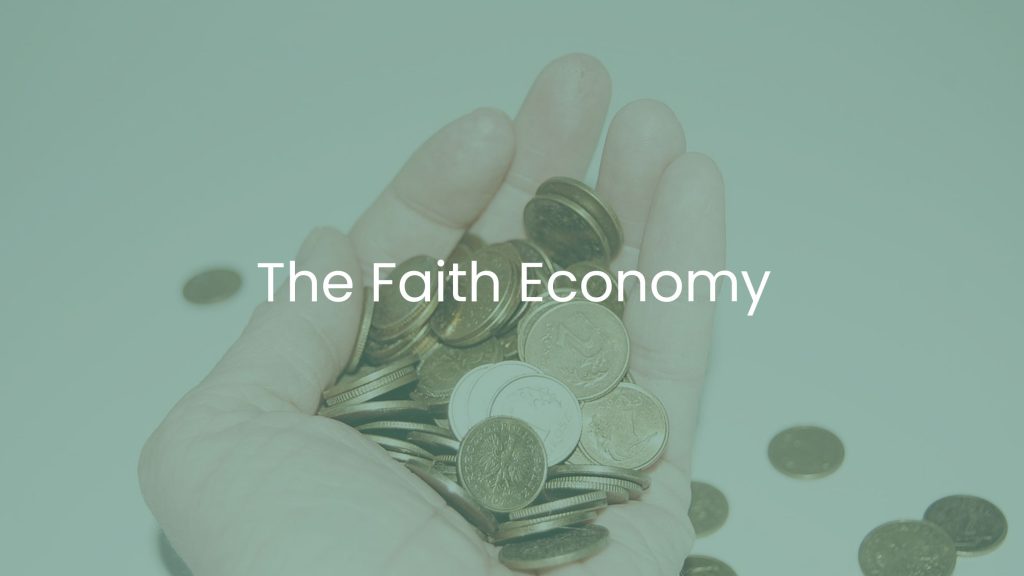|
Getting your Trinity Audio player ready...
|
We find the perfect example of faith economics in Acts 4:
Now the full number of those who believed were of one heart and soul, and no one said that any of the things that belonged to him was his own, but they had everything in common (Acts 4:32, ESV).
The economics of the church start with faith, while the economy of the world begins with capital or resources.
In the business world, banks or investors put up money, and then the money’s spent according to a plan (hopefully). But with the church, all development begins with faith, a radically different approach to finances.
When we receive the grace of salvation, the means and ways of the world become less influential in our lives.
And with great power the apostles were giving their testimony to the resurrection of the Lord Jesus, and great grace was upon them all (Acts 4:33).
This “great power” impacts everything, including our finances. In the business world, banks loan, but in the church, God provides.
There was not a needy person among them, for as many as were owners of lands or houses sold them and brought the proceeds of what was sold and laid it at the apostles’ feet, and it was distributed to each as any had need (Acts 4:34-35).
I’ve often experienced the “Faith Economy.”
When I first started in ministry, I was so excited about my salvation and others coming to know Jesus, I didn’t need money, and I worked without a salary for the first two years of my ministry. I also remember a call from John Essig, after a powerful meeting at the One Way House (the original name of Fellowship Church), with about a dozen young people coming to know Jesus.
The call. . .
“Hey Grant, it’s John. You need help at the One Way House and I’m going to start working there tomorrow.”
I responded, “John, we have no money to pay you.”
“Don’t worry, Grant. I’m coming anyway; you don’t need to pay me.”
John did show up the next day and stayed on staff for over 35 years (eventually, we did begin to pay him)!
Thus Joseph, who was also called by the apostles Barnabas (which means son of encouragement), a Levite, a native of Cyprus, sold a field that belonged to him and brought the money and laid it at the apostles’ feet (Acts 4:36-37).
The economics of faith!
No worries about money, being obedient, serving the Lord, and watching God provide. In 50 years of working at Fellowship, every significant venture began by faith. . .
- All our buildings — no money, no bank account, but being led by God in faith — He provided.
- All our missions: Russia, Philippines, many local ministries, missionaries sent, and the world impacted. Most started with no money, no bank account, but were led by God to trust His provision.
I’m conflicted writing this Interruption, realizing the need for financial accountability and not making irresponsible decisions, but knowing that God’s provision comes after steps of faith and not before.
It’s possible for churches and believers to walk in financial grace their entire lives, taking vision steps by faith, but many (even those who lived in the grace economy) feel more comfortable with a “God provides before we step” philosophy of funding ministry.
God blesses both ideas. I just don’t think anything of significance would have happened in my ministry without the faith economy.

